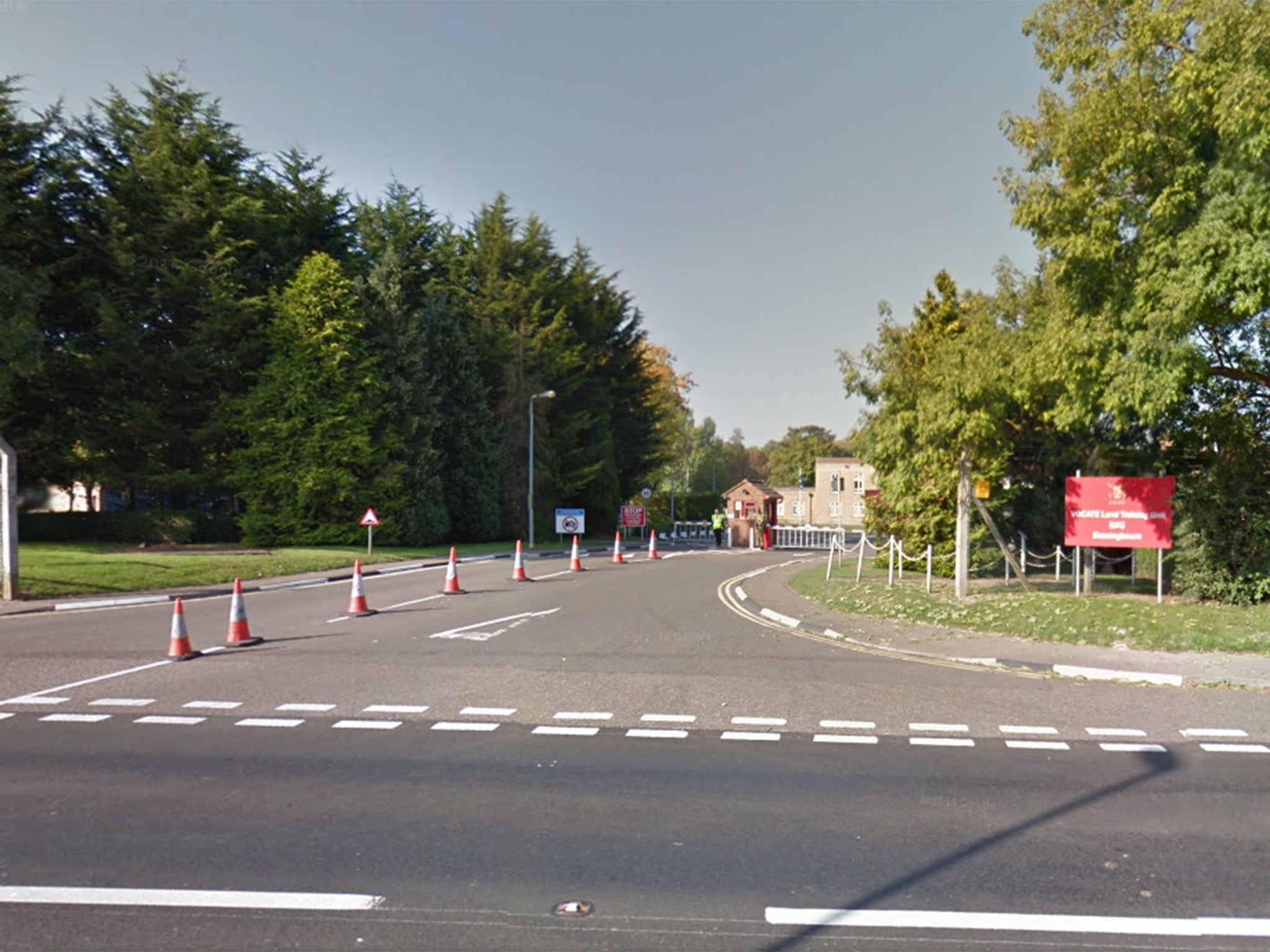Sex attacks and cadets on the run: Peace at last for the village that got a taste of Libyan anarchy
Britain’s efforts to help Libyan state-building turned into five months of fear for villagers

Eileen Murphy was yesterday once more walking her spaniel Dolly close to the fence surrounding Bassingbourn Barracks. For the past fortnight she had avoided the barbed-wire barrier out of concern that her daily stroll would bring her into contact with the visiting Libyan soldiers inside.
The residents of Bassingbourn cum Kneesworth are long used to cohabiting with the military. The adjoining base was once home to the US Air Force squadron which flew the Memphis Belle bomber and for 40 years until 2012 the sprawling facility had been used to train British Army recruits.
But an attempt to place this Cambridgeshire village in the front line of Britain’s state-building efforts in the wake of one of the bloodiest revolutions of the Arab Spring has proved more unsettling.
Some 250 former rival Libyan militiamen arrived in June for a six-month training course as part of an undertaking by the Government to help shape the North African country’s security forces.
As the last of their number yesterday left for home after the programme was cut short, many in the surrounding community feel that Britain’s efforts to stabilise the land once terrorised by Muammar Gaddafi have put them in danger themselves.
A spate of sex attacks in the last two weeks in nearby Cambridge has resulted in charges being laid against five of the Libyan recruits. A further five have sought asylum, while their comrades return to Libya, denying allegations of ill-discipline and infighting.

Amid the solid Victorian architecture of Bassingbourn village, a place where the parish council minutes are posted outside the village shop and noticeboards abound with adverts for badminton clubs and quilting groups, there was yesterday little mincing of words.
Tales abounded of young Libyan recruits jumping the fences to clear the Spar of alcohol – leaving only a small stock of Malibu – and soldiers from the Royal Highland Fusiliers charged with running the training being dispatched to round up their wayward charges in a minibus.
Ms Murphy said: “People have been genuinely worried for their safety in the last few days. These young men have come from a country at war. You can’t imagine what they’ve done or seen. Once you hear that there have been incidents of rape and sexual assault then what woman in their right mind is going to venture out on their own?
“This is not xenophobia. It’s just common sense. The Ministry of Defence gave assurances that the recruits would be kept under supervision and yet people were finding them in their gardens or wandering about buying booze. We feel lied to and rather let down.”
Prime Minister David Cameron announced in June that Britain had agreed to train 2,000 Libyan military personnel in “basic infantry skills and junior leadership” as part of a G8 commitment to build “human rights-compliant security and justice systems” in Tripoli and beyond.
Bassingbourn Barracks was readied for the task, with various civilian groups, including the village golf club, given notice to quit and the Libyan government paid £2.5m to refurbish buildings.
In an attempt to reassure villagers, the Army said the recruits, young men in their late teens or early twenties whose vetting had been carried out by the Libyan authorities, would be allowed to leave the base only in small groups while under escort.

But Maria Costello, who runs Hattie’s Coffee Shop in the high street, said: “It didn’t work out that way. In the last couple of months, the Libyan guys had begun to leave the base. The soldiers would turn up to collect them. They asked us not to mention it.”
Many in the village credited the Black Watch trainers with doing their best under difficult circumstances after a contingent of 200 further troops were dispatched from Scotland to beef up security around the base. Any anger was instead focused further up the chain of command.
Adrian Dent, the Conservative county councillor for Bassingbourn, said: “I don’t think anyone here has much argument with the idea of helping the Libyans to secure their country. But the implementation by the Ministry of Defence has been appalling.”
Yesterday, there was caution on all sides that the Libyans should not be tarred with the same brush.
Omar Al-Mukhtar, a recruit who is not accused of any wrongdoing, suggested the Libyans had chafed at the military discipline imposed upon them. Speaking to the BBC, he said: “They didn’t tell us about British law and what’s the difference between right and wrong here.”
The MoD reiterated yesterday that it believed the majority of the Libyan recruits had “responded positively” to the training and it was reviewing how best to meet Mr Cameron’s commitment.
Andrew Lansley, the former health secretary and local MP, told The Independent: “My assumption is that no further tranches [of Libyan trainees] will come to the UK.”
Bookmark popover
Removed from bookmarks